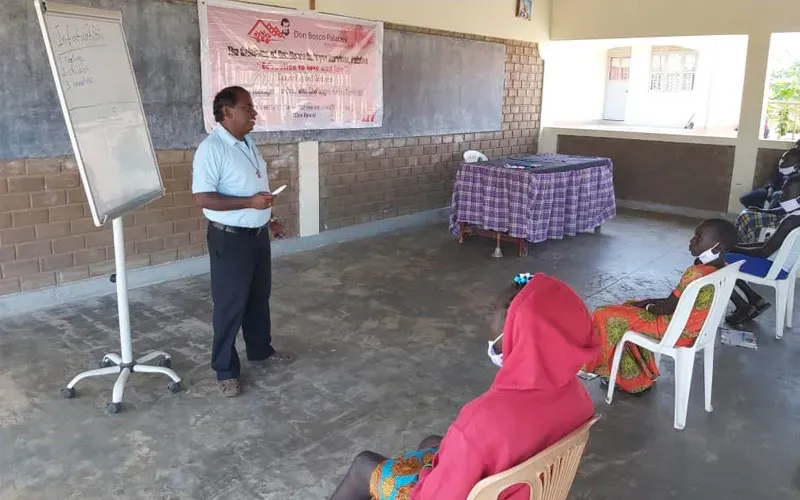“The classes were conducted for three days and they were supervised on Weekends in their Practical Services. On February 9 they were given credentials to serve and we hope to resume further training in the coming weeks,” Fr. Arasu says, and adds, “We are very grateful to them for their generosity and we are greatly impressed by their eagerness to learn.”
Among the challenges that the Salesians are facing at the Palabek Refugee Services include the presence of many languages, lack of liturgical books and Bibles in the native languages, and lack of records for the Catholics in the refugee settlement, he says.
There is also a constant influx of new refugees, which Fr. Arasu says hinders planning for Pastoral care at the refugee settlement.
Other challenges, the Chaplain for refugees at Palabek Refugee Services in Uganda says, arise from cultures and traditional practices, which he says are new to the pastoral agents.
“Every part of the Church has pastoral challenges. Often, they are unique and greatly differ from each other,” he says, and explains that the challenges that refugees face arise from their constant need to move from one place to another in search of safety and better living conditions.
(Story continues below)
“It is certain that refugees, migrants and people on the move have more challenges than those living in stable conditions. Church that is on the move for safety – physically and spiritually – has enormous challenges. War scatters them; morally and spiritually wounds them; leaving them broken in spirit,” he says.
He adds in reference to refugees, migrants, and people on the move, “Before reaching a Refugee Camp they have already suffered lack of pastoral care in the war-torn areas. The situation only gets worse in a migrant camp. If they happen to receive some pastoral care they are really blessed.”
The Salesian Priest says that out of 60,000 refugees, at least 40,000 are Catholics “or they have been Catholics and are now non-practicing.”
“We are regularly in touch with about 2,000 people and another 500 occasionally attend prayers. But most wish to receive baptism and they are proud to call themselves Catholics. It is just an ‘external identity’. It is a big pastoral challenge to reach the ‘unchurched’. As Pastors we are not discouraged,” he says, and adds, “We push ahead with the Word of God and Sacraments.”
Agnes Aineah is a Kenyan journalist with a background in digital and newspaper reporting. She holds a Master of Arts in Digital Journalism from the Aga Khan University, Graduate School of Media and Communications and a Bachelor's Degree in Linguistics, Media and Communications from Kenya's Moi University. Agnes currently serves as a journalist for ACI Africa.








